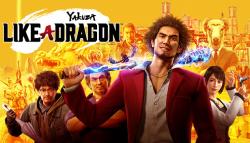 Yakuza: Like A Dragon (Computer)
Yakuza: Like A Dragon (Computer)
Official GBAtemp Review
Product Information:
- Release Date (NA): November 10, 2020
- Release Date (EU): November 10, 2020
- Publisher: SEGA
- Developer: Ryu Ga Gotoku Studio
- Genres: Action, Adventure, JRPG
- Also For: PlayStation 4, Xbox One
Game Features:
When I first launched Yakuza: Like A Dragon, the story of Masumi Arakawa’s early life played, leading up to showing how his father was murdered in cold blood while seated at a restaurant. Then: time skip; and we’re shown an adult Masumi turned patriarch of a yakuza family. But I don’t play as Arakawa; instead, I’m put in the shoes of Ichiban Kasuga, a low-ranking member of this family, chasing a thug who’s ripping students off by selling animal videos instead of porn he promised them. With this drastic change from a dark, gritty atmosphere to a downright silly one within minutes, I knew then that Yakuza was back with its unique approach of being equal parts serious and equal parts silly.
This Yakuza-esque approach is perpetuated throughout the title. But even if we encounter familiar places like Kamurocho and yakuza clans at the beginning, Yakuza: Like A Dragon is decidedly a new chapter in the franchise. Prominently, it follows the story of Ichiban, an unremarkable yakuza member, who gains more attention the day he takes the blame for killing a rival yakuza member (although he is innocent). He agrees to get banished from the yakuza family and gets sentenced to prison for nearly 2 decades; with the promise to be welcomed back into the family after his jail time.
After 18 long years, Ichiban finally steps out of prison, gets a bad haircut and goes to meet his Yakuza family, only to learn that his patriarch, Masumi Arakawa, changed allegiance. The latter even shoots Ichiban when he seeks explanations. Our protagonist survives the incident but upon waking up, he somehow finds himself in a totally different city - Yokohama (more specifically, the fictional district of Isezaki Ijincho) - and among homeless people. With no means to go back to Kamurocho nor know how he got here, Ichiban decides to turn the page and sets out to begin a new chapter of his life in a new city.
The overarching narrative is one you’d expect of a typical Yakuza game; an eloquent one with strong character development of the main cast. You get to witness first-hand as Ichiban evolves from an unremarkable rookie yakuza through being homeless to being president of a commercial business. But he still, unwittingly, gets intermingled with yakuza and underground affairs; affairs that eventually link him back to his past life. Then we come across interesting characters who join your party like an ex-nurse with a criminal record who turned homeless; an ex-detective who has serious beef with the police commissioner; or a bar hostess who wants justice for her murdered boss. Of course, how their arc progresses is rich in goofy moments that shows the game doesn’t take itself as seriously. You’ll sneak into a posh restaurant from the sewers, clean up a restaurant that’s really a brothel and even work as a cleaner who’s infiltrating a luxury retirement home; but all these do make sense storywise! And that’s only the main quest!
Side quests are packed with the Yakuza charm as well. These missions vary from defeating yakuzas with a diaper fetish to collecting data about degenerates of society for a “researcher” to fill an encyclopedia à la Pokédex. Regarding side quests, I also felt Yakuza: Like A Dragon to have less of the “side quest simulator” feel to it as you aren’t getting stopped at every corner by a random NPC with a request for you as would be typical in other Yakuza games. You do encounter such moments but at a significantly lower frequency. When these do happen, it’s mostly for those side quests that introduce a gameplay element like Poundmates to call up new fighters during battle, how to manage a business or other gigs that help you make more money like with Part-Time Hero or collecting cans to recycle. Otherwise you can voluntarily trigger a side quest by walking up to an NPC with a green conversation bubble (also marked on the map). This is a welcome change and gives the player freedom of engaging in side missions at their own pace.
Even if the majority of the game takes place in Yokohama, exploration feels similar to other Yakuza games. You’ll get to run around the semi-open world city, take taxis and even go “treasure hunting”, which is basically looking for dropped coins around vending machines. The bustling city is brought to life with impressive renders and NPCs going on their routine; some of whom you can eavesdrop on their conversation and hear genuine comments like a child asking her Mum the meaning of S&M club or a man talking to himself about how he would work in a particular strip club if he were a woman. And again, it’s a Yakuza game, so expect trouble at almost any corner and for whatever you do, whether it’s when looking for jobs or doing your job; you’ll inevitably come across thugs who want a fight.
This brings us to the major change in the game. Even if you control a new character, come across new faces and places in Yakuza: Like A Dragon, the biggest novelty by far is the turn-based JRPG battle system. This marks the first time a Yakuza game opted for such a mechanic, which have up to now been action RPG titles with a beat ‘em up approach. I was honestly skeptical about how turn-based combats would play out as a Yakuza game. To me, the franchise is defined by its fast-paced, forceful combat sessions where you wield whatever’s on your path be it a baseball bat or a bicycle to crush an enemy’s skull. Swapping that to a slow-paced, turn-based system did not initially sound appealing to me. At first I wasn’t impressed either. The whole gamut you’d expect of a JRPG battle system is there such as restorative items, attacks, special attacks (skills), defense and leveling up by collecting XP after battles; but the first couple of chapters didn’t help convince me that this slow, turn-based approach was indeed adapted for a Yakuza game.
But as other characters joined my party and more features unlocked, I started to feel like the turn-based system was actually more Yakuza-esque than the previous beat ‘em up system. That was most apparent with skills (or special attacks) of party members. These uphold the Yakuza humour like “Gnarly Breath” which is a smelly breath that you blow over an enemy, lowering their defense or pop a champagne bottle to literally shitface a foe to death. Similarly, opponents will have similar attacks from creepy dudes flashing their underwear to more tech-savvy ones who’ll expose your phone’s content to lower your stats. To me, those battles are even strangely reminiscent of Pokémon ones, where you get notifications when you bleed profusely, when an enemy has been defeated, when an enemy taunts you or when one inflicts a status ailment. Such a battle system approach could only find a home in a Yakuza game and it’s well executed if you allow it time to sink in.
Moreover, your characters don’t have to stick to only a handful of such skills and battle weapons as each character in your party can be assigned a “Job” title which confers them specific skills and weapons to use in battle (in-battle outfits will also change accordingly but will revert to the original outfit outside of battles). Some roughly equate to JRPG roles like Breaker would be aggro, Host would be the mage and Musician would be support; but in Yakuza: Like A Dragon, these roles have the distinct Yakuza touch. There are several Job titles that can be assigned to specific characters and these Jobs can be leveled up as well to gain additional skills.
Even with those changes, you can still use nearby bicycles or street signs to attack opponents like in previous Yakuza games. A normal attack will change into a weapon attack when those objects are nearby, leading to your character to kick or bash that object for some serious damage. There’s also a dynamic positioning aspect to battles as your enemies move around and you can use their position to inflict collateral damage to others or wait till they are close to a bicycle stand for extra damage. For additional advantage in battles you can craft and upgrade weapons and gear and also listening to your party members’ occasional chit-chats increase your bond with them which can help in combats.
Of note, many of those battle system and upgrade features that really make Yakuza: Like A Dragon’s approach stand out only become available after a couple of chapters, meaning several hours in. Yakuza games are typically quite long and this new installment is no different. There are plenty of cutscenes which last for dozens of minutes with lengthy conversations that expand on characters’ backstories and motivations, and the writing is not lacking in surprising twists. The stellar acting of the cast further helps in fleshing out the characters and we get to see Ichiban become a worthy protagonist of the Yakuza series, somewhat sharing similar qualities to Kiryu with a tough outer shell around a humane core. But the game faces pacing issues in the way it introduces its new mechanic.
This is especially the case given the fact that it’s a major departure from the traditional ones in terms of gameplay, and the new combat gameplay features take a bit too much time to really open up. The ability to craft gears, swap party members from a full roster and change Job titles are only available after over 7 hours since starting the game. This new battle system approach will inevitably be divisive among Yakuza fans but I came to terms with it after experiencing what it really has to offer. Here the game faces pacing issues in introducing its mechanic to players.
It could also appeal more to those who might have been put off from the former fast-paced battles and want to tackle fights at their own pace. It will particularly be right up the alley of traditional, turn-based JRPG fans because that’s what Yakuza: Like A Dragon is. The game also overtly proclaims its inspiration from Dragon Quest, with Ichiban thinking of himself as a Dragon Quest hero whenever he fights, letting his imagination go wild and even change enemies’ appearance.
In addition to the time it takes for the battle system to take off, a major drawback is the significant backtracking that’s an integral part of the game. You’ll have to go back to an office you've been before to talk to the same person multiple times but it can be at the opposite end of the city you’re in; and the district you’re in is big. This will lead you to inevitably bump into thugs for a bit of grind and here a fast-travel mechanic would be very welcome. Fast-travel does exist in the form of taxis but these aren't available everywhere, are paid utilities and sometimes simply aren’t available to take you to close enough to where you have to show up at. You’ll also have to open doors of individual taxis you come across to make the stop they are at available to fast travel to (even if you’ve passed right by it several times).
A related gripe I had is that Job titles can only be changed at a certain office; meaning you’ll have to backtrack all the way there (or use a taxi) whenever you want to experiment with other Jobs (and the accompanying skills) that a character might have unlocked.
Like Yakuza 0, Yakuza: Like A Dragon does for a great entry point to newcomers to the series but its noticeable Yakuza-ness will still appeal to those familiar with the franchise. The turn-based combat might be divisive but once it sinks in, battles do feel satisfactory and its gripping plot with intriguing characters will also keep you going. That the franchise does not rest on its laurels and introduces a new character, a new mechanic and brand-new locations and does so in a well-executed manner deserves recognition. If you’re a fan of well-written, narrative-driven games with likeable characters and strong development arcs, Yakuza: Like A Dragon is an easily recommended title to sink hours in; but bear in mind that these will be hours upon hours to sink in, upwards of 30 hours.
Yakuza: Like a Dragon | Launch Trailer
Verdict
- New RPG mechanic incorporates Yakuza-ness
- Gripping plot
- Character development
- Acting
- Swapping beat ‘em up for turn-based battles can be divisive
- JRPG features take some time to unlock
- Backtracking
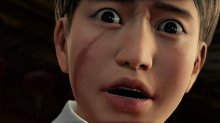


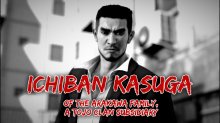

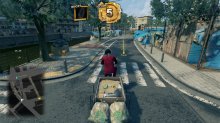
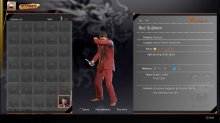


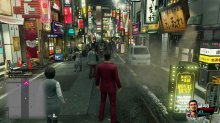
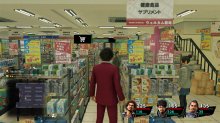
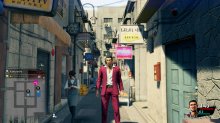
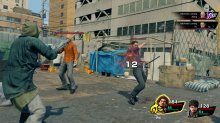
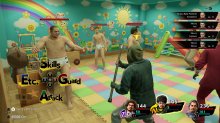


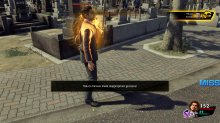
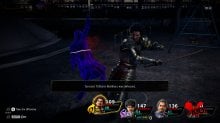
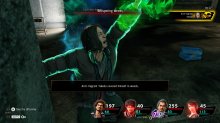
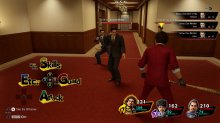
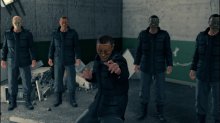

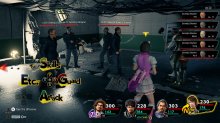





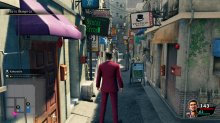
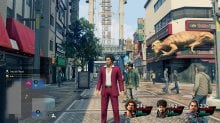
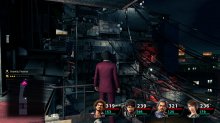
Reviews
Alone in the Dark (2024)
Alone in the Dark is a Survival Horror game available for PlayStation 5, Xbox Series S/X and PC.
Rauniot
Step into post-apocalyptic Northern Finland in Rauniot, Act Normal Game’s debut point-and-click title. Let’s click away!
Broken Roads
Australia-based indie developer Drop Bear Bytes’ debut title, Broken Roads, launches today on PC and consoles. Does this new cRPG have what it takes to stand toe-to-toe to its contemporaries?
Ereban: Shadow Legacy
Ereban: Shadow Legacy is Baby Robot Games’ debut title that merges classic stealth mechanics with a fast-paced ability to merge with shadows. Should you allow it to sneak into your PC gaming library?
South Park: Snow Day!
South Park is back in the gaming sphere with the followup to Obsidian’s hit duo of RPGs, South Park: Snow Day!
Site & Scene News
New Hot Discussed
Homebrew Dr. Robotnik's Ring Racers (fan game), a sequel to SRB2Kart, is now available
Nintendo Switch Online adds two more Nintendo 64 titles to its classic library
"Pizza Boy A Basic" emulator back into Google Play Store free and without ads
IGN X ID@ Xbox Digital Showcase scheduled for April 29th, 2024
Homebrew Shenmue: Reclaiming The Path (fan game) trailer
Nintendo Switch firmware update 18.0.1 has been released
Anbernic reveals specs details of pocket-sized RG28XX retro handheld
Persona 3 prequel "Aegis: The First Mission" will be ported to Switch & Steam
Fallout TV series officially confirmed for a second season
Review Alone in the Dark (2024)
Nintendo Switch firmware 18.0.0 has been released
Atmosphere CFW for Switch updated to pre-release version 1.7.0, adds support for firmware 18.0.0
Wii U and 3DS online services shutting down today, but Pretendo is here to save the day
GBAtemp Exclusive Introducing tempBOT AI - your new virtual GBAtemp companion and aide (April Fools)
The first retro emulator hits Apple's App Store, but you should probably avoid it
Pokemon fangame hosting website "Relic Castle" taken down by The Pokemon Company
MisterFPGA has been updated to include an official release for its Nintendo 64 core
Delta emulator now available on the App Store for iOS
"TMNT: The Hyperstone Heist" for the SEGA Genesis / Mega Drive gets a brand new DX romhack with new features
Anbernic announces RG35XX 2024 Edition retro handheld
Nintendo Switch firmware 18.0.0 has been released
Wii U and 3DS online services shutting down today, but Pretendo is here to save the day
GBAtemp Exclusive Introducing tempBOT AI - your new virtual GBAtemp companion and aide (April Fools)
Atmosphere CFW for Switch updated to pre-release version 1.7.0, adds support for firmware 18.0.0
The first retro emulator hits Apple's App Store, but you should probably avoid it
Delta emulator now available on the App Store for iOS
Nintendo Switch firmware update 18.0.1 has been released
Pokemon fangame hosting website "Relic Castle" taken down by The Pokemon Company
MisterFPGA has been updated to include an official release for its Nintendo 64 core
Nintendo "Indie World" stream announced for April 17th, 2024